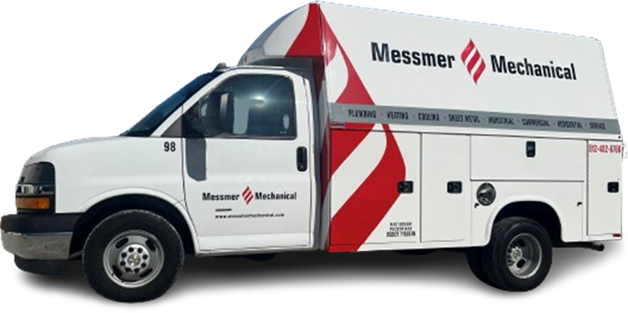When it comes to keeping your home warm and comfortable without spending a fortune, a geothermal heat pump offers an energy-efficient solution. Also called a ground-source heat pump, a geothermal heat pump system draws heat from the stable temperature of the ground or water beneath your home to generate heat.
However, like any HVAC system, they can encounter issues that prevent them from working as they should. If your geothermal heat pump isn’t heating your home properly, don’t panic. Here are the most common reasons it might not be heating and what you can do to address the issue.

Thermostat Issues
Sometimes, the problem could be as simple as an issue with your thermostat. If the thermostat is set to “cool” or the temperature setting is too low, the heat pump will not heat. A malfunctioning thermostat may also fail to send the correct signal to the system, preventing it from activating. Make sure your thermostat is set to “heat” mode and increase the temperature setting to a level higher than the current indoor temperature to ensure the unit kicks on. If your thermostat is digital, try replacing the batteries or resetting it.
Dirty Air Filter
A dirty air filter restricts airflow, causing the system to work harder and potentially overheat. Insufficient airflow reduces the system’s ability to distribute heat effectively throughout your home. This can lead to poor performance or no heating at all. Turn off the heat pump, remove the air filter and either clean it (if reusable) or replace it with a new one if needed. Make it a habit to clean or replace your air filter every 1-3 months to ensure proper airflow and system efficiency.
Ground Loop or Water Source Issues
Geothermal systems rely on either a ground loop or a water source to exchange heat. If there’s an issue with either – such as freezing, low flow, or improper installation – it can reduce the system’s efficiency and prevent it from heating properly. Problems with the ground loop or water source often require the expertise of a geothermal technician to diagnose and repair.
Low Refrigerant Levels
Geothermal heat pumps use refrigerant to transfer heat from the ground or water into your home. If the refrigerant levels are too low due to a leak, the system will not be able to efficiently transfer heat. If your system is blowing cool or lukewarm air, it could be a sign of low refrigerant levels. Call a professional to inspect the system, locate any leaks, and recharge the refrigerant.
Faulty Compressor or Pump
The compressor is a crucial component of a geothermal heat pump. If it fails, the system cannot circulate refrigerant through the system, which means no heat will be transferred to your home. Similarly, a malfunctioning circulating pump can cause the system to fail in heating mode. If the system isn’t running at all or isn’t providing heat, it may be a sign that the compressor or pump is malfunctioning. This requires the expertise of an HVAC professional with experience in geothermal systems, like Messmer Mechanical.
When to Call Messmer Mechanical
While some geothermal heat pump problems can be resolved with basic troubleshooting, others require professional expertise. If your system is still not heating after following the above troubleshooting tips, it’s time to call Messmer Mechanical. You count on us for expert diagnosis and high quality repair work to get your system running efficiently and keep your home warm all year-round.




